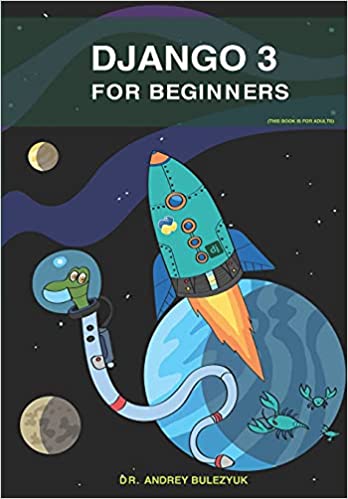- Understanding the EU’s Shift to Instant Open Access: A New Era for Scientific Research
- How Ditching Author Fees Will Impact the Academic Publishing Landscape
- Knowledge for All: The Benefits of Open Access for Researchers, Institutions, and the Public
- Challenges and Opportunities: What the Future Holds for Open Access Publishing in the EU
Understanding the EU’s Shift to Instant Open Access: A New Era for Scientific Research
In a groundbreaking move, the European Union (EU) has decided to embrace instant open access for all publicly funded research, marking a significant shift in the way scientific knowledge is disseminated. This decision is a response to the growing demand for unrestricted access to research findings, which has been fueled by the rapid advancements in digital technology and the increasing need for global collaboration in addressing complex challenges.
Instant open access refers to the immediate and unrestricted availability of research articles online, allowing anyone with internet access to read, download, and share these articles without any barriers. This is in stark contrast to the traditional subscription-based model, where access to research articles is limited to those who can afford to pay for journal subscriptions or individual article fees. By adopting instant open access, the EU aims to accelerate the pace of scientific discovery and innovation, as well as promote greater transparency and inclusivity in the research community.
The EU’s commitment to instant open access is part of a broader strategy to create a European Research Area (ERA), which envisions a unified and open research landscape across the continent. This ambitious plan seeks to remove barriers to the free flow of knowledge, resources, and researchers, fostering a more collaborative and efficient research ecosystem. The shift to instant open access is expected to play a crucial role in achieving this vision, as it will enable researchers from different countries and disciplines to easily access and build upon each other’s work.
While the EU’s decision to embrace instant open access is a major milestone, it is not the first organization to advocate for this approach. Several international initiatives, such as Plan S and the Berlin Declaration on Open Access to Knowledge in the Sciences and Humanities, have been pushing for open access policies for years. However, the EU’s move is particularly significant given its influence on research funding and policy-making in Europe, which is home to some of the world’s leading research institutions and scientific publishers.
As the EU embarks on this new era of instant open access, it is essential for researchers, institutions, and publishers to adapt to the changing landscape and embrace the opportunities it presents. By doing so, they can contribute to the creation of a more open, collaborative, and innovative research environment that benefits not only the scientific community but also society as a whole.
How Ditching Author Fees Will Impact the Academic Publishing Landscape
The EU’s decision to eliminate author fees for instant open access publishing is expected to have a profound impact on the academic publishing landscape. Traditionally, many open access journals have relied on author fees, also known as article processing charges (APCs), to cover the costs of publishing and peer review. These fees can be a significant financial burden for researchers, particularly those from low-income countries or institutions with limited funding. By removing this barrier, the EU aims to create a more equitable and inclusive publishing environment, where researchers can share their findings without being hindered by financial constraints.
One potential consequence of ditching author fees is a shift in the business models of open access journals. In the absence of APCs, publishers will need to explore alternative revenue streams to sustain their operations. This could include institutional memberships, where universities and research institutions contribute to the costs of publishing on behalf of their researchers, or funding from government agencies and philanthropic organizations. Some publishers may also consider adopting a freemium model, offering basic open access services for free while charging for premium features such as enhanced discoverability or advanced analytics.
Another important aspect to consider is the potential impact on the quality and rigor of the peer review process. With the elimination of author fees, there may be concerns that publishers will be less inclined to invest in thorough and rigorous peer review, which is essential for maintaining the integrity of the scientific literature. To address this issue, the EU and other stakeholders must work together to develop mechanisms that ensure the quality of the peer review process is not compromised, such as establishing minimum standards for peer review or providing funding to support the development of innovative peer review models.
As the academic publishing landscape evolves in response to the EU’s decision, it is crucial for researchers and institutions to stay informed about the changes and adapt their publishing strategies accordingly. This may involve seeking out reputable open access journals that do not charge author fees, or exploring alternative avenues for sharing their research, such as preprint servers or institutional repositories. By being proactive and embracing the new opportunities presented by the EU’s open access policy, researchers can help shape the future of academic publishing and ensure that their work reaches the widest possible audience.
In conclusion, the EU’s move to ditch author fees for instant open access publishing has the potential to significantly transform the academic publishing landscape. While there may be challenges to overcome, such as developing sustainable business models and ensuring the quality of the peer review process, the benefits of a more equitable and inclusive publishing environment are clear. By working together, researchers, institutions, publishers, and policymakers can seize this opportunity to create a more open and collaborative research ecosystem that drives scientific progress and benefits society as a whole.
Knowledge for All: The Benefits of Open Access for Researchers, Institutions, and the Public
The EU’s commitment to instant open access and the elimination of author fees promises numerous benefits for researchers, institutions, and the public at large. By making research findings freely available to everyone, open access has the potential to democratize knowledge and foster a more inclusive and collaborative research environment. This, in turn, can accelerate scientific progress, drive innovation, and ultimately contribute to the betterment of society.
For researchers, open access offers increased visibility and impact for their work. Studies have shown that open access articles are more likely to be cited and shared than those published behind paywalls, as they can be accessed by a wider audience, including researchers from low-income countries, independent scholars, and practitioners in various fields. This increased exposure can lead to new collaborations, funding opportunities, and career advancements for researchers, as well as contribute to the global advancement of knowledge in their respective fields.
Institutions also stand to benefit from the EU’s open access policy. By making their researchers‘ work freely available, universities and research centers can showcase their contributions to the global research community and attract top talent, funding, and partnerships. Moreover, open access can help institutions save on the costs of journal subscriptions, which have been steadily rising over the years, and allocate these resources to other critical areas such as research infrastructure, training, and support services.
Perhaps the most significant beneficiaries of open access are the public and society as a whole. As taxpayers often fund a large portion of scientific research, it is only fair that they have access to the results of this research without having to pay additional fees. Open access can also facilitate the translation of research findings into practical applications, as industry professionals, policymakers, and other stakeholders can easily access and build upon the latest scientific knowledge. This can lead to the development of new technologies, products, and services that improve people’s lives and address pressing global challenges, such as climate change, public health, and social inequality.
In summary, the EU’s embrace of instant open access and the removal of author fees have far-reaching benefits for researchers, institutions, and the public. By breaking down barriers to knowledge and fostering a more open and collaborative research environment, this policy can help drive scientific progress, spur innovation, and ultimately contribute to the betterment of society. As the EU moves forward with this ambitious initiative, it is essential for all stakeholders to work together to maximize the potential of open access and ensure that its benefits are fully realized.
Challenges and Opportunities: What the Future Holds for Open Access Publishing in the EU
While the EU’s decision to embrace instant open access and eliminate author fees is a significant step forward, it also presents several challenges and opportunities that will shape the future of open access publishing in the region. Navigating these challenges and seizing the opportunities will be crucial for ensuring the long-term success of the EU’s open access policy and realizing its full potential to transform the research landscape.
One of the main challenges facing open access publishing in the EU is the need to develop sustainable business models that can support the costs of publishing without relying on author fees. As mentioned earlier, this may involve exploring alternative revenue streams such as institutional memberships, government funding, or philanthropic support. Publishers will also need to adapt their operations and workflows to accommodate the increased volume of open access articles, which may require investments in new technologies and infrastructure. Collaborative efforts between publishers, research institutions, and funding agencies will be essential for addressing these challenges and ensuring the financial viability of open access publishing.
Another challenge is the potential resistance from some stakeholders, particularly commercial publishers who have long relied on subscription revenues and may be reluctant to embrace the open access model. To overcome this resistance, the EU and other advocates of open access will need to engage in dialogue with these stakeholders and demonstrate the benefits of open access for the research community and society as a whole. This may involve showcasing successful open access initiatives, providing support and incentives for publishers to transition to open access, and developing policies and regulations that promote transparency and fair competition in the publishing market.
Despite these challenges, the EU’s open access policy also presents numerous opportunities for innovation and growth in the publishing sector. For instance, the shift to open access may spur the development of new publishing platforms, tools, and services that cater to the needs of researchers and institutions in the open access environment. This could include innovative peer review models, advanced analytics and discoverability solutions, and platforms that facilitate collaboration and data sharing among researchers. By embracing these opportunities, publishers can not only adapt to the changing landscape but also play a leading role in shaping the future of research communication.
In conclusion, the EU’s decision to adopt instant open access and eliminate author fees marks a new era for research publishing in the region, with both challenges and opportunities ahead. By working together, researchers, institutions, publishers, and policymakers can overcome these challenges and seize the opportunities to create a more open, inclusive, and innovative research ecosystem. This, in turn, will help drive scientific progress, foster collaboration, and ultimately benefit society as a whole.








0 Comments